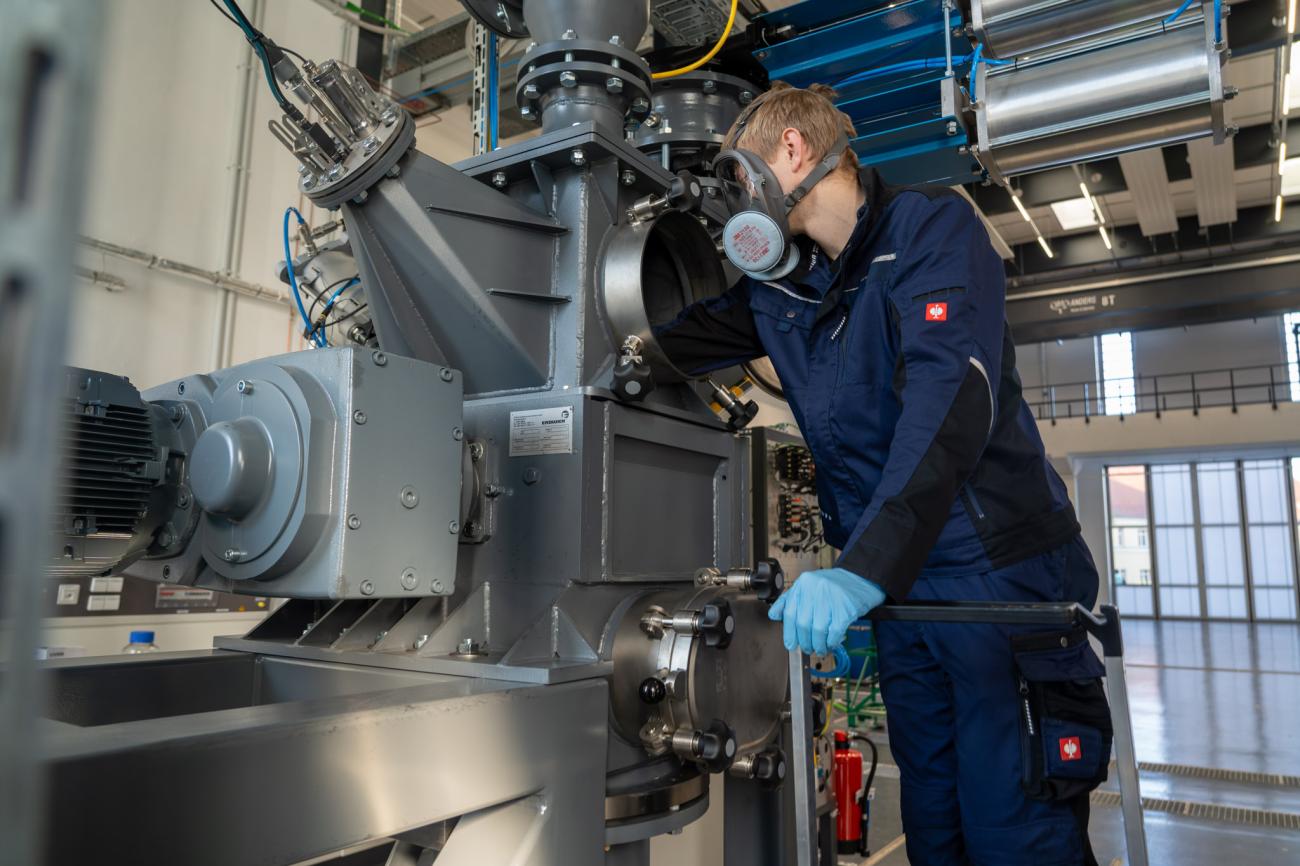TU Freiberg tests new shredder plant for battery recycling
The researchers’ aim is to make battery recycling more efficient and economically attractive. The new shredder system makes it possible to shred used battery cells weighing up to 2.5 kilograms in a single step. This produces particles between 0 and 20 millimetres, in particular fine particles, the so-called black mass. This contains the valuable raw materials nickel, cobalt and lithium.
“Our aim is to recover these materials as completely as possible. From 2027 or 2031, this will be required by the new version of the European Battery Regulation for the disposal and recycling of battery waste. The quality of the black mass is important in this context. Contamination by other components of the battery cell such as aluminium, copper or plastic should be avoided. The new plant enables us to carry out extensive experimental studies and thus optimise the quality of the black mass,” says Professor Urs Peuker, Director of the Institute of Mechanical Process Engineering and Processing Technology at TU Bergakademie Freiberg.
Sensors and cameras record the processes. The shredder system is online-capable and collects the results from the experiments in a special research database. This database not only collects the results from this system, but also brings together a lot of other data from the TU Bergakademie and its partners at the Freiberg site, such as the Helmholtz Institute Freiberg and the Fraunhofer THM.
The new shredder technology can be used for batteries from power tools or e-bikes as well as for larger cells from electric and hybrid vehicles. The final black mass is produced by further steps carried out on a pilot scale, such as sieving, sifting or magnetic separation.
“Another advantage of the system is its closed design. The volatile electrolytes that escape when the batteries are shredded can thus be recovered. This increases process reliability on the one hand and the recycling rate of all components on the other,” explained Alexandra Kaas, Group Leader for Recycling.
The research facility was purchased as part of the ‘InfraDatRec’ project, which was funded by the Federal Ministry of Education and Research from the special ‘Energy and Climate Fund’ with a total of around 7 million euros until the end of September 2024.
The first tests to shred the batteries began back in the summer. New sensors will soon be used to connect the shredder system to databases and analyse data using artificial intelligence. “Battery recycling has become more complex – the classic simple methods and tools are reaching their limits. We are developing and demonstrating the future of recycling technologies using electromobility, a key technology for Saxony,” explained Professor Urs Peuker. “This is only possible with live data acquisition, big data and AI!”





0 Comments